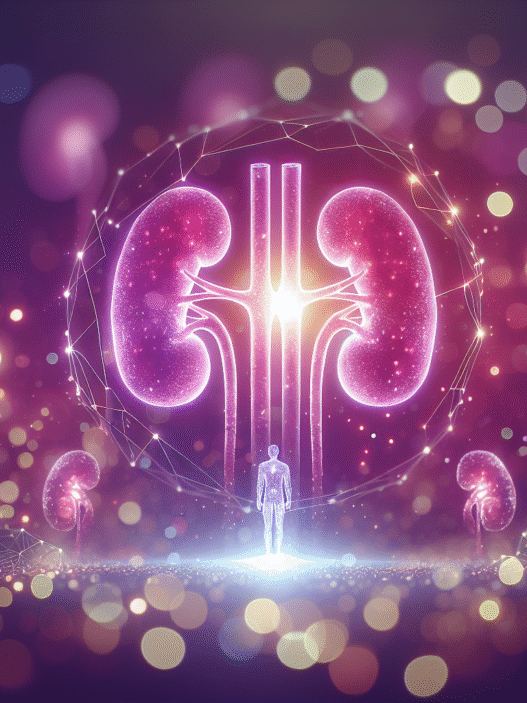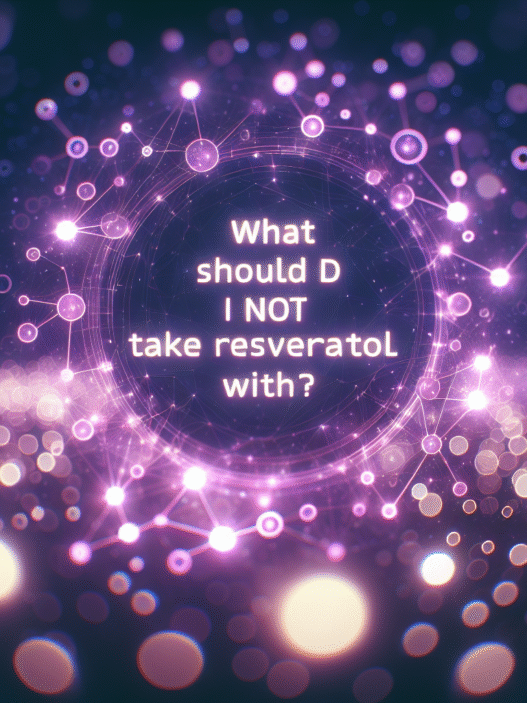Exploring Resveratrol
What is Resveratrol?
Resveratrol is a natural polyphenolic compound found in various plants. It is often classified as an antioxidant, which helps to neutralize harmful free radicals in the body. Resveratrol is notably recognized for its potential health benefits, particularly in the realm of longevity and anti-aging.
Sources of Resveratrol
Resveratrol can be found in a variety of foods and beverages. Some of the richest sources include:
| Source | Resveratrol Content (mg per 100g) |
|---|---|
| Red Wine | 0.2 – 5.8 |
| Grapes (Red) | 0.24 – 1.25 |
| Blueberries | 0.1 – 0.3 |
| Peanuts | 0.01 – 0.07 |
| Dark Chocolate | 0.8 – 2.5 |
For a deeper exploration of these sources, read more about resveratrol foods.
Benefits of Resveratrol
The potential health benefits of resveratrol have captured the attention of researchers and health enthusiasts alike. Some of the notable advantages include:
- Anti-aging Effects: Resveratrol is often linked with longevity and the promotion of healthy aging. Studies suggest it may help delay the onset of age-related diseases.
- Heart Health: Resveratrol may contribute to cardiovascular health by improving blood flow and reducing plaque buildup in arteries. For more details, visit resveratrol for heart health.
- Anti-inflammatory Properties: The compound might help in reducing inflammation, which is a key factor in various chronic conditions. Explore this topic further in our article on resveratrol for inflammation.
- Cancer Prevention: Some research indicates that resveratrol may have protective effects against certain types of cancer. To learn more about this topic, see our section on resveratrol for cancer.
- Weight Management: Evidence suggests that resveratrol could potentially aid in weight loss efforts and metabolic health. Read about its role in resveratrol for weight loss.
Each of these benefits positions resveratrol as a valuable component of a holistic approach to health and longevity. However, individuals should also be aware of the potential resveratrol side effects that may arise, which will be discussed in detail in subsequent sections.
Understanding Resveratrol Side Effects
As interest in resveratrol grows, it is essential to acknowledge the potential side effects associated with its usage. Individuals considering resveratrol for its health benefits must be informed about these adverse effects to make educated choices.
Potential Side Effects
Resveratrol is generally well-tolerated by many individuals; however, some may experience side effects. Commonly reported side effects include:
| Side Effect | Description |
|---|---|
| Digestive Issues | Some individuals may experience stomach discomfort, diarrhea, or cramping. |
| Allergic Reactions | Rarely, individuals might have allergic responses such as itching or rash. |
| Headaches | Some users report experiencing headaches when taking high doses. |
| Interactions | Resveratrol can interact with certain medications, influencing their effects. |
Those interested in the benefits of resveratrol can find more information in our article on resveratrol benefits.
Factors Influencing Side Effects
Several factors can impact the occurrence and severity of resveratrol side effects. These include:
| Factor | Influence on Side Effects |
|---|---|
| Dosage | Higher doses may lead to increased side effects. For recommended amounts, visit resveratrol dosage. |
| Individual Tolerance | Each person’s body reacts differently to supplements; personal tolerance levels can vary significantly. |
| Pre-existing Conditions | Those with certain medical conditions may be more prone to side effects. Individuals should consult healthcare professionals if they have concerns. |
| Interactions with Other Supplements or Medications | Combining resveratrol with other substances can heighten the risk of side effects; individuals should review interactions carefully. For more details, explore drug interactions. |
Understanding these factors helps users navigate their experiences with resveratrol effectively. Continued research into resveratrol’s effects and benefits can provide additional insights, which can be found in our article on resveratrol research.
Resveratrol Dosage and Safety
Determining the appropriate dosage and understanding safety precautions are essential for those interested in the effects of resveratrol on health and longevity.
Recommended Dosage
The optimal dosage of resveratrol can vary widely based on various factors, including the individual’s health status and the method of intake (e.g., supplements vs. natural sources). Below is a general guideline for common forms of resveratrol consumption:
| Form | Recommended Dosage |
|---|---|
| Resveratrol Supplements | 100 mg to 500 mg per day |
| Resveratrol from Foods | Consuming natural sources like grapes, berries, and red wine as part of a balanced diet |
For specific health conditions or desired outcomes, such as those related to resveratrol for weight loss or resveratrol for cholesterol, it’s advisable to consult with a healthcare professional to determine a suitable regimen.
Safety Precautions
While resveratrol is generally considered safe for most individuals, there are certain precautions to keep in mind to minimize potential side effects. Below are key guidelines to follow:
-
Consultation with Healthcare Providers: Individuals should consult their healthcare provider before starting any resveratrol supplements, especially those with underlying health issues or those currently taking medications.
-
Monitor Dosage: Stick to recommended dosages and avoid excessive intake, as high doses may lead to unwanted side effects.
-
Be Aware of Allergies: Some individuals may have allergies or reactions to components found in resveratrol-rich foods or supplements.
-
Pregnant or Nursing Women: Pregnant or breastfeeding women should avoid high doses of resveratrol without medical advice.
For further understanding of resveratrol’s benefits, including its potential impact on aging and longevity, refer to our articles on resveratrol benefits and resveratrol and longevity. Staying informed about proper dosages and safety measures can enhance the overall effectiveness of resveratrol for health optimization.
Managing Resveratrol Side Effects
Understanding how to manage potential side effects associated with resveratrol is essential for longevity and anti-aging enthusiasts. This section will cover common side effects and strategies to minimize them.
Common Side Effects
While resveratrol is generally considered safe, some individuals may experience side effects. The following table outlines potential side effects commonly reported:
| Side Effect | Description |
|---|---|
| Digestive Issues | This may include diarrhea, bloating, or gas. |
| Headaches | Some users may experience mild to moderate headaches. |
| Skin Reactions | Skin irritation or allergic reactions may occur in sensitive individuals. |
| Interaction with Medications | Resveratrol can interact with certain medications, amplifying effects or causing adverse reactions. |
How to Minimize Side Effects
Minimizing side effects is possible through sensible practices and precautions. Here are some strategies:
-
Start with Low Dosages: Beginning with a lower dosage and gradually increasing it can help the body adjust. Refer to our article on resveratrol dosage for recommended guidelines.
-
Consult with Healthcare Professionals: It is beneficial to discuss any concerns with a doctor, especially for those taking medications or with pre-existing health conditions.
-
Stay Hydrated: Drinking adequate water can help mitigate some digestive issues that may arise.
-
Monitor Dietary Sources: Eating resveratrol-rich foods resveratrol foods can provide benefits while minimizing the likelihood of high-concentration side effects seen in supplements.
-
Consider Timing: Taking resveratrol with meals may reduce digestive discomfort and enhance absorption.
-
Avoid Mixing with Certain Medications: Awareness of potential interactions can prevent complications. For more information about drug interactions, see our section on drug interactions.
By adopting these measures, individuals can better navigate the use of resveratrol while leaning into its health benefits, including those for heart health, cholesterol, and inflammation. For an overview of these advantages, explore our articles such as resveratrol benefits and resveratrol for heart health.
Interactions and Risks
Understanding how resveratrol may interact with other substances and the potential risks associated with its use is vital for longevity and anti-aging enthusiasts.
Drug Interactions
Resveratrol may interact with various medications, potentially impacting their effectiveness or increasing the likelihood of adverse effects. It is essential for individuals taking any prescription or over-the-counter medications to be aware of these potential interactions.
| Medication Type | Interaction Effect |
|---|---|
| Anticoagulants (e.g., warfarin) | Resveratrol may enhance the effects of blood thinners, increasing the risk of bleeding. |
| Antihypertensives | It might lower blood pressure, leading to excessive hypotension when combined with these drugs. |
| Hormonal medications | Resveratrol has estrogenic properties, which could potentially interfere with hormone therapies. |
| Antibiotics | Some studies suggest that resveratrol may affect the metabolism of certain antibiotics, altering their effectiveness. |
Consultation with a healthcare provider is recommended before starting any resveratrol supplements, particularly for those on medication.
Risks and Precautions
Despite the potential benefits of resveratrol, there are important risks to consider. Individual responses may vary, and certain groups are advised to use caution.
| Risk Factor | Description |
|---|---|
| Allergies | Individuals allergic to grapes or related plants could experience allergic reactions. |
| Pregnancy and Breastfeeding | There is limited research on the safety of resveratrol in pregnant or nursing women. Caution is advised. |
| Gastrointestinal Issues | High doses of resveratrol can lead to upset stomach, diarrhea, or nausea in some individuals. |
| Liver Health | Those with liver conditions should exercise caution, as resveratrol is metabolized in the liver. |
Monitoring and understanding personal tolerance levels is crucial when incorporating resveratrol into a health regimen. For details on recommended doses and safety measures, refer to our article on resveratrol dosage. For more information regarding the health benefits of resveratrol, visit our pages on resveratrol health benefits and resveratrol for blood pressure.
Consultation and Conclusion
Seeking Professional Advice
For individuals considering adding resveratrol to their health regimen, seeking professional advice is crucial. A healthcare provider can provide personalized recommendations, especially for those with preexisting conditions or those taking medications. Understanding the potential resveratrol side effects can help users make informed decisions about their health choices.
Consulting with a healthcare professional ensures that any supplements or dietary changes align with an individual’s overall health goals. This is especially important for anti-aging enthusiasts looking to benefit from resveratrol for skin and overall longevity.
Final Thoughts on Resveratrol Side Effects
Resveratrol holds promising health benefits, from supporting heart health to acting as an anti-aging agent. However, it is essential to be aware of the possible side effects. Adopting a balanced approach to incorporating resveratrol into one’s lifestyle can lead to better health outcomes.
Individuals should monitor their body’s response to resveratrol and adjust their intake as necessary. For more information on the benefits of resveratrol, visit our articles on resveratrol benefits and resveratrol health benefits. Keeping informed about the correct usage and understanding potential interactions can enhance the positive effects of resveratrol while minimizing risks.
Table 1 below summarizes key aspects of resveratrol side effects and safety.
| Aspect | Description |
|---|---|
| Common Side Effects | Nausea, diarrhea, digestive upset |
| Consultation Recommendation | When taking medications or with conditions |
| Recommended Dosage | Generally between 150mg to 500mg per day |
| Precautions | Start with lower doses, monitor reactions |
By staying informed and proactive, individuals can integrate resveratrol into their routine effectively, contributing to their wellness and longevity journey.





















